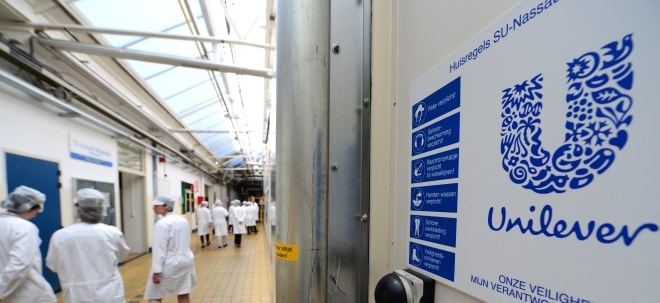Lightcast Releases 2025 Talent Attraction Scorecard: Celebrating a Decade of Talent Development Insights
Florida and Texas Top Rankings Again as Sunbelt and Mountain West Continue Talent Attraction Dominance
MOSCOW, Idaho, Sept. 15, 2025 /PRNewswire/ -- Florida has solidified its position as the nation's top state for talent attraction, with Texas close behind at No. 2, according to Lightcast's 2025 Talent Attraction Scorecard—marking a decade since the company first began tracking these critical workforce migration patterns.
This 10th anniversary edition reveals that the Sunbelt and Mountain West continue their dominance in attracting workers, with eight of the top 10 states located in these regions. Wyoming leapfrogged into the top 5 at No. 4, joining neighboring Idaho at No. 3, while Nevada, Arizona, Utah, and Montana round out the top 10 alongside the District of Columbia and Delaware.
"A decade ago, talent attraction was emerging as a new concept in economic development," said Josh Wright, Executive Vice President of Growth at Lightcast. "Today, it's become the foundation of regional competitiveness. With demographic shifts, remote work, and evolving worker preferences reshaping the landscape, data-driven talent strategies aren't just helpful—they're essential for community survival and growth."
Lightcast will be presenting this data tomorrow at the International Economic Development Council (IEDC) Annual Conference in Detroit, offering attendees an inside look at the newest trends shaping US talent mobility. Wright will be joined by Cecelia Thompson, Executive Director at Action Greensboro, to share new findings on migration, education, and job growth trends—and how to turn those insights into action. The session will be held at 1:30 pm on Tuesday, September 16.
Texas and Florida Lead Metropolitan Rankings
The dominance of Texas and Florida extends to the metropolitan level, where these two states claim eight of the top 10 large metropolitan statistical areas (MSAs). Texas claims three spots with Dallas-Fort Worth at No. 1, Austin at No. 2, and Houston at No. 6. Florida claims all seven of the remaining top 10.
Six Key Trends Shaping 2025 Workforce Migration
This year's scorecard identifies six critical trends driving talent attraction:
Methodology and Measurement
The Talent Attraction Scorecard evaluates all 50 states and more than 900 metropolitan and micropolitan areas across seven equally weighted components: overall job growth, growth in college-level jobs, growth in blue-collar jobs, growth in high-earning jobs, regional competitiveness, attraction of earners, and attraction of prime-age talent (ages 25-54). It uses a combination of proprietary Lightcast data and government statistics including Census information that has been analyzed and refined by Lightcast.
Top 10 States for Talent Attraction:
Bottom 10 States for Talent Attraction:
Note: Including the District of Columbia in state rankings resulted in 51 total "states."
42. Massachusetts
43. Ohio
44. Indiana
45. Iowa
46. Minnesota
47. Wisconsin
48. Michigan
49. New York
50. Illinois
51. California
Top 10 Large MSAs (250,000+ population):
Bottom 10 Large MSAs (250,000+ population):
187. Rockford, IL
188. Springfield, MA
189. Minneapolis-St. Paul-Bloomington, MN-WI196. Los Angeles-Long Beach-Anaheim, CA
190. Detroit-Warren-Dearborn, MI
191. Boston-Cambridge-Newton, MA-NH
192. Pittsburgh, PA
193. San Francisco-Oakland-Fremont, CA
194. Chicago-Naperville-Elgin, IL-IN
195. New York-Newark-Jersey City, NY-NJ
196. Los Angeles-Long Beach-Anaheim, CA
Top 10 Mid-Sized MSAs (100,000-250,000 people)
Top 10 Small MSAs (50,000-100,000 people)
The complete rankings and interactive analysis tools are available at lightcast.io/talent-attraction-scorecard-25-full-rankings
About the Scorecard's Impact
Over the past decade, the Talent Attraction Scorecard has evolved from highlighting an emerging trend to providing essential intelligence for economic development strategies. Communities using Lightcast data have successfully leveraged insights to secure millions in investment, develop targeted workforce programs, and build compelling cases for business attraction and retention.
"The Talent Attraction Scorecard isn't just about where communities stand; it's about providing the roadmap for where they want to go," Wright added. "After 10 years of tracking these patterns, we're seeing communities use this data not just to understand migration, but to actively shape their economic futures."
About Lightcast
Lightcast is the global leader in labor market intelligence, empowering smarter decisions for businesses, education institutions, and governments worldwide. With the world's most comprehensive database—spanning over 3 billion job postings, 500 million career profiles, and more than 100 government sources—Lightcast delivers unparalleled insight into skills, jobs, companies, professional profiles, and workforce trends across 165 countries. Our proprietary taxonomies, advanced AI, and expert guidance transform complex data into clear, actionable intelligence.
Lightcast has offices in the United States, United Kingdom, Canada, Italy, New Zealand, and India. Learn more at lightcast.io
Media Contact: media@lightcast.io
![]() View original content to download multimedia:https://www.prnewswire.com/news-releases/lightcast-releases-2025-talent-attraction-scorecard-celebrating-a-decade-of-talent-development-insights-302554405.html
View original content to download multimedia:https://www.prnewswire.com/news-releases/lightcast-releases-2025-talent-attraction-scorecard-celebrating-a-decade-of-talent-development-insights-302554405.html
SOURCE Lightcast


